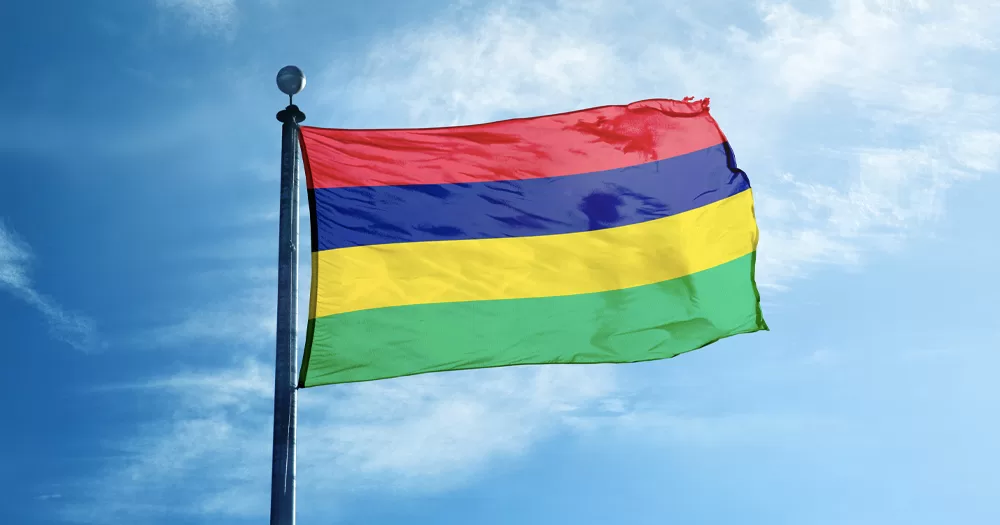On Wednesday, October 4, the Supreme Court in Mauritius decriminalised homosexuality in a landmark decision, striking down the country’s anti-sodomy laws introduced under British colonial rule.
Abdool Ridwan Firaas (Ryan) Ah Seek, a gay man and prominent LGBTQ+ activist, filed a lawsuit in 2019 seeking to abolish the anti-sodomy laws. With the help of advocacy group Collectif-Arc-en-Ciel, Ah Seek sued the state, claiming that section 250 of the Mauritian Penal Code 1838, which criminalises sexual intercourse between consenting men, was unconstitutional.
In the landmark ruling, the court found that the law violated protections enshrined in the constitution, saying: “The present case concerns the most private and intimate aspects of the identity of homosexual men, namely the manner in which they have sexual intercourse.”
The judgment continued, “Accordingly, there must exist particularly serious reasons for the State to justifiably interfere with the manner in which homosexual men choose to have consensual sexual intercourse in private.”
The Supreme Court further specified that the law criminalising homosexuality “was not introduced into Mauritius to reflect any Mauritian values but was inherited as part of our colonial history from Britain”.
“Its enactment was not the expression of domestic democratic will but was a course imposed on Mauritius and other colonies by British rule,” the ruling read.
WONDERFUL NEWS FROM MAURITIUS: the Supreme Court has ruled that a law criminalising consensual same-sex sexual acts is unconstitutional! Congratulations to our member orgs and communities in Mauritius, and to all those who fought so hard to see this historic moment happening! pic.twitter.com/yIb3coBHve
— ILGA World (@ILGAWORLD) October 4, 2023
Welcoming the decision, plaintiff Ah Seek released a statement saying: “Receiving this judgment in my favor is an enormous relief. From today, as a citizen and a human being, I am now free to love whoever I want to without fear.
“Above all, it also means that the next generations can fully and freely embrace their sexuality without fear of being arrested. This victory is undoubtedly a major step towards the full inclusion of our community in Mauritian society,” Ah Seek added.
Organisation Egides and Rekonekte also welcomed the ruling, with spokesperson Anjeelee Beegun saying: “Today the Supreme Court finally recognized that Section 250 of the penal code violates the fundamental human rights guaranteed by the constitution.
“More importantly, the Supreme Court has stated in clear terms that the constitution, which is the supreme law of the land, protects us from discrimination on the basis of sexual orientation.”
Beegun also emphasised how the anti-sodomy law was a legacy of the British colonial empire, saying: “We can finally break free from the shackles of a centuries’ old law which, despite being a remnant of the country’s colonial past, continued to feed into the stigma and hate against LGBTQIA+ people in present days.
“The LGBTQIA+ community in Mauritius continues to face numerous challenges, but the decriminalization of same-sex intimacy is paramount to the full inclusion of LGBTQIA+ people,” Beegun stated. “This judgment is a huge leap forward in the right direction and will hopefully inspire the community to continue fighting for equality and dignity.”
© 2023 GCN (Gay Community News). All rights reserved.
Support GCN
GCN is a free, vital resource for Ireland’s LGBTQ+ community since 1988.
GCN is a trading name of National LGBT Federation CLG, a registered charity - Charity Number: 20034580.
GCN relies on the generous support of the community and allies to sustain the crucial work that we do. Producing GCN is costly, and, in an industry which has been hugely impacted by rising costs, we need your support to help sustain and grow this vital resource.
Supporting GCN for as little as €1.99 per month will help us continue our work as Ireland’s free, independent LGBTQ+ media.

comments. Please sign in to comment.